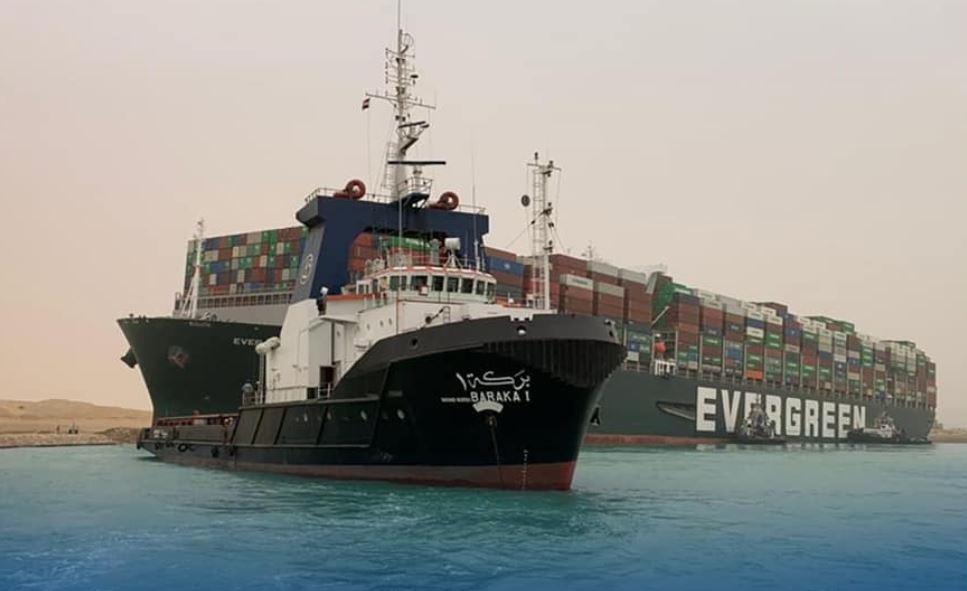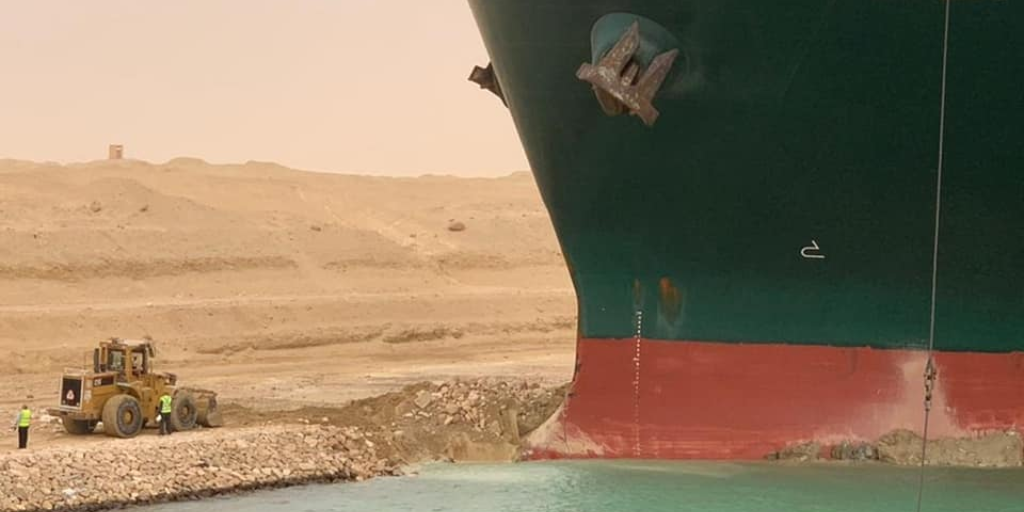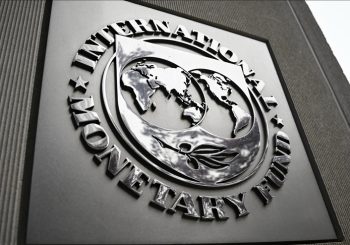
Rescue efforts are ongoing to refloat a 400-metre-long cargo ship in the Suez Canal after it ran aground on Tuesday morning, causing widespread disruption along the vital international trade route.
According to the official Suez Canal Authority (SCA), strong winds and limited visibility from a recent sandstorm led to loss of ability to steer the ship, named the Ever Given, which then became lodged sideways, blocking the movement of other vessels through the canal.
The SCA announced today that eight rescue tugboats are involved in a rescue operation to refloat the stranded ship which was en route to the Netherlands from China. Some reports claim that it has already been partially refloated.
Either way, the incident has already caused widespread shipping and trade disruption, with hundreds of cargo ships reportedly blocked from both sides. The canal is a heavily relied-upon route; 50 ships passed through the canal per day in 2019 according to government statistics.
A press release from the Ever Given’s management company, Bernhard Schulte Shipmanagement, stated that “all crew are safe and accounted for.” They further added that no pollution, cargo damage or injury had been reported, and an investigation had already ruled out mechanical or engine failure as causing the incident.
The Suez Canal is one of the world’s most important waterways. The existence of man made canals connecting the Mediterranean Sea to the Red Sea can be traced back to 1310 BC, but construction of the modern canal was completed in 1869. Nowadays, the canal oversees around eight percent of global maritime trade annually, and tolls paid by passing vessels are a vital income source for the Egyptian government.







Comments (3)
[…] Ever Given, a so-called ‘megaship’, was en route from China to the Netherlands when it became lodged sideways across the canal, blocking one of the world’s most critical trade […]
[…] Ever Given, a so-called ‘megaship’, was en route from China to the Netherlands when it became lodged sideways across the canal, blocking one of the world’s most critical trade […]